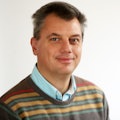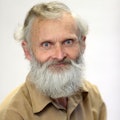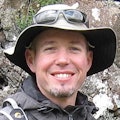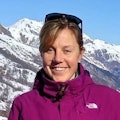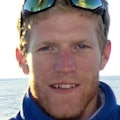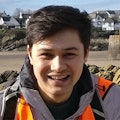Mae ein hymchwil yn mynd i’r afael â chwestiynau sylfaenol am y prosesau dynamig sy’n ffurfio basnau’r cefnforoedd, yr eangdiroedd cyfandirol rydyn ni’n byw arnyn nhw, tu mewn i’n planed, a’r cysylltiadau cymhleth rhyngddyn nhw.
Mae’r pynciau sydd o ddiddordeb yn cynnwys
- cylchrediad y fantell o ddynameg tansugno i esblygiad y fantell gyfan
- strwythur a rheoleg parthau ffawt sy’n aseismig a rhai sy’n creu daeargrynfeydd
- esblygiad ymylon cyfandirol o hollti i ddrifftio
- esblygiad ymylon actif o gychwyn tansugno i gau’r cefnfor
- cydadwaith rhwng prosesau magmatig, tectonig a hydrothermol ar gribau yng nghanol y cefnfor.
Er mwyn mynd i’r afael â chwestiynau cymhleth, mae ein hymchwil yn gyfuniad o waith maes, modelu rhifiadol, ac astudiaethau labordy o'r radd flaenaf. Yn ein Labordy Seismig 3D, rydyn ni’n defnyddio data seismig 2D a 3D i ymchwilio i esblygiad basnau, prismau ymgasglol, a thectoneg ymylon cyfandirol goddefol.
Rydyn ni’n ymchwilio i geodynameg y fantell, esblygiad parthau ffawt a chroeswasgu, a’r cylch seismig trwy fodelu rhifiadol, gan ddefnyddio Prifysgol Caerdydd a chyfleusterau cyfrifiadurol perfformiad uchel cenedlaethol. Caiff cyfleusterau micro-ddadansoddol helaeth eu defnyddio, gan gynnwys microsgobeg electron optegol a sganio, LA-ICP-MS ac ICP-OES, ar gyfer dadansoddiadau microstrwythurol a geocemegol o samplau mwynau a chreigiau cyfan.
Rydyn ni’n weithgar mewn ymdrechion cydweithredol mawr megis drilio cefnforol a chyfandirol, ac arolygon geoffisegol ar lannau ac oddi ar lannau. Mae ein tîm seismoleg dysgu peirianyddol yn defnyddio arsylwadau cydraniad uchel o araeau nodol dwys byd-eang a synhwyro acwstig gwasgaredig i ymchwilio i ddynameg daeargrynfeydd.
Mae llawer o’n prosiectau ymchwil yn croesi’r un llwybrau â grwpiau ymchwil eraill gan gynnwys Mwynau ac Ynni, Prosesau Magmatiga Pheryglon a Risgiau Amgylcheddol.
Nodau Datblygu Cynaliadwy
Mae ein gwaith yn uniongyrchol berthnasol i dri o Nodau Datblygu Cynaliadwy y Cenhedloedd Unedig:
Pobl
Staff academaidd
Myfyrwyr ôl-raddedig
Ysgolion
Y camau nesaf
Ymchwil o bwys
Mae ein hymchwil yn gwneud gwahaniaeth i fywydau pobl wrth i ni weithio mewn disgyblaethau gwahanol i fynd i’r afael â heriau mawr sy’n wynebu cymdeithas, yr economi a’n hamgylchedd.
Ymchwil ôl-raddedig
Mae ein graddau ymchwil yn rhoi’r cyfle i ymchwilio i bwnc penodol yn fanwl ymhlith ymchwilwyr blaenllaw yn y maes.
Effaith ein hymchwil
Mae astudiaethau achos ein hymchwil yn amlygu rhai o’r meysydd lle rydyn ni’n cael effaith gadarnhaol o ran ein hymchwil.


